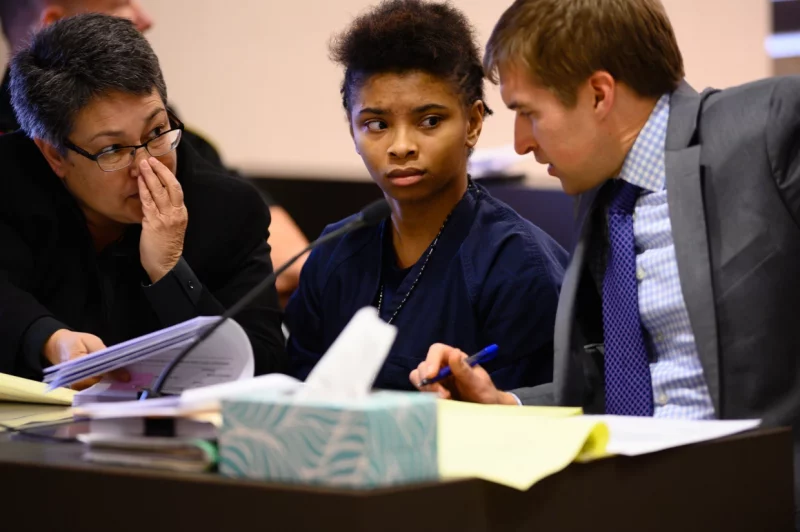Wisconsin Supreme Court rules in favor of Chrystul Kizer, allowing sex trafficking defense in homicide trial
Share
Explore Our Galleries
Breaking News!
Today's news and culture by Black and other reporters in the Black and mainstream media.
Ways to Support ABHM?
By Doha Madani, NBC News
Prosecutors say Kizer killed a man before she set his home on fire in a first-degree intentional homicide. Kizer says she defended herself against a man who trafficked her.

The high court of Wisconsin upheld a lower court ruling Wednesday that allows Chrystul Kizer to argue self-defense to justify killing the man who she said sexually abused her when she was a minor.
Kizer, 22, is awaiting trial on a first-degree intentional homicide charge, as well as other felony charges, in the death of Randall Volar III. Prosecutors say Kizer shot and killed Volar in 2018, when she was 17, before she set fire to his home.
In a 2019 interview, Kizer said that she met Volar when she was 16 and that he sexually abused her multiple times. She didn’t remember going for a gun or setting a fire, she said.
“I didn’t intentionally try to do this,” she said.
Kizer has tried to use a legal defense under Wisconsin law that allows victims of trafficking to have “an affirmative defense for any offense committed as a direct result” of being trafficked.
An appeals court allowed Kizer to proceed with the defense at trial, a decision the Wisconsin Supreme Court affirmed 4-3 on Wednesday. The high court’s ruling said that the defense was available to Kizer “regardless of whether anyone is charged with or convicted of trafficking” and that the facts of the case are to be determined at trial.
Learn more about the rulings in Kizer’s case.
Unfortunately, the trafficking of Black girls in America gets little attention.
ABHM helps ensure you never miss the latest news.









Comments Are Welcome
Note: We moderate submissions in order to create a space for meaningful dialogue, a space where museum visitors – adults and youth –– can exchange informed, thoughtful, and relevant comments that add value to our exhibits.
Racial slurs, personal attacks, obscenity, profanity, and SHOUTING do not meet the above standard. Such comments are posted in the exhibit Hateful Speech. Commercial promotions, impersonations, and incoherent comments likewise fail to meet our goals, so will not be posted. Submissions longer than 120 words will be shortened.
See our full Comments Policy here.